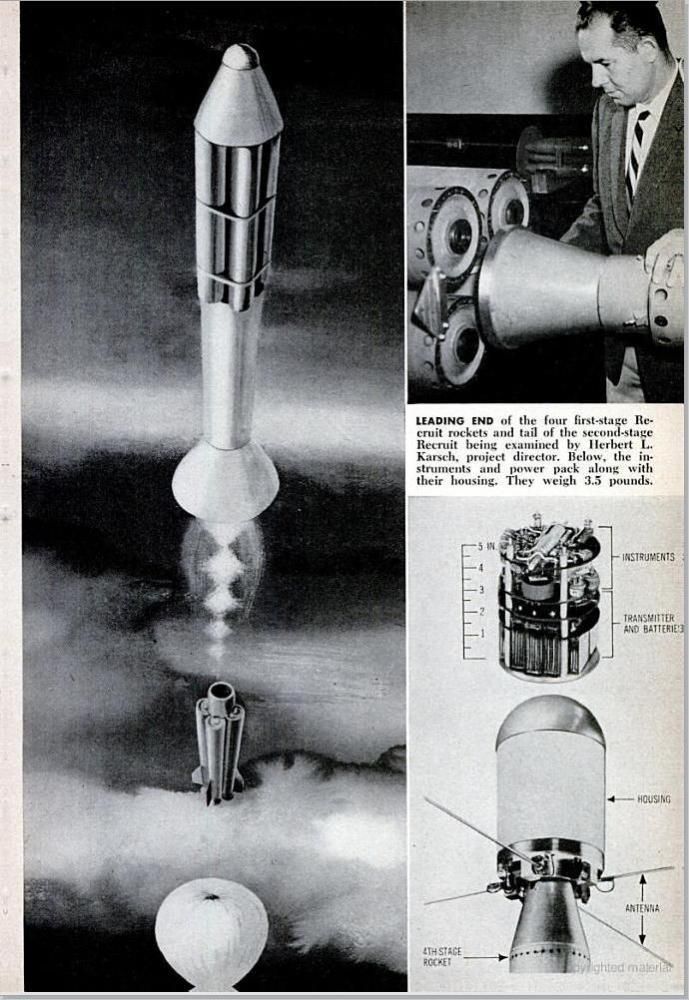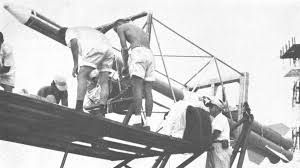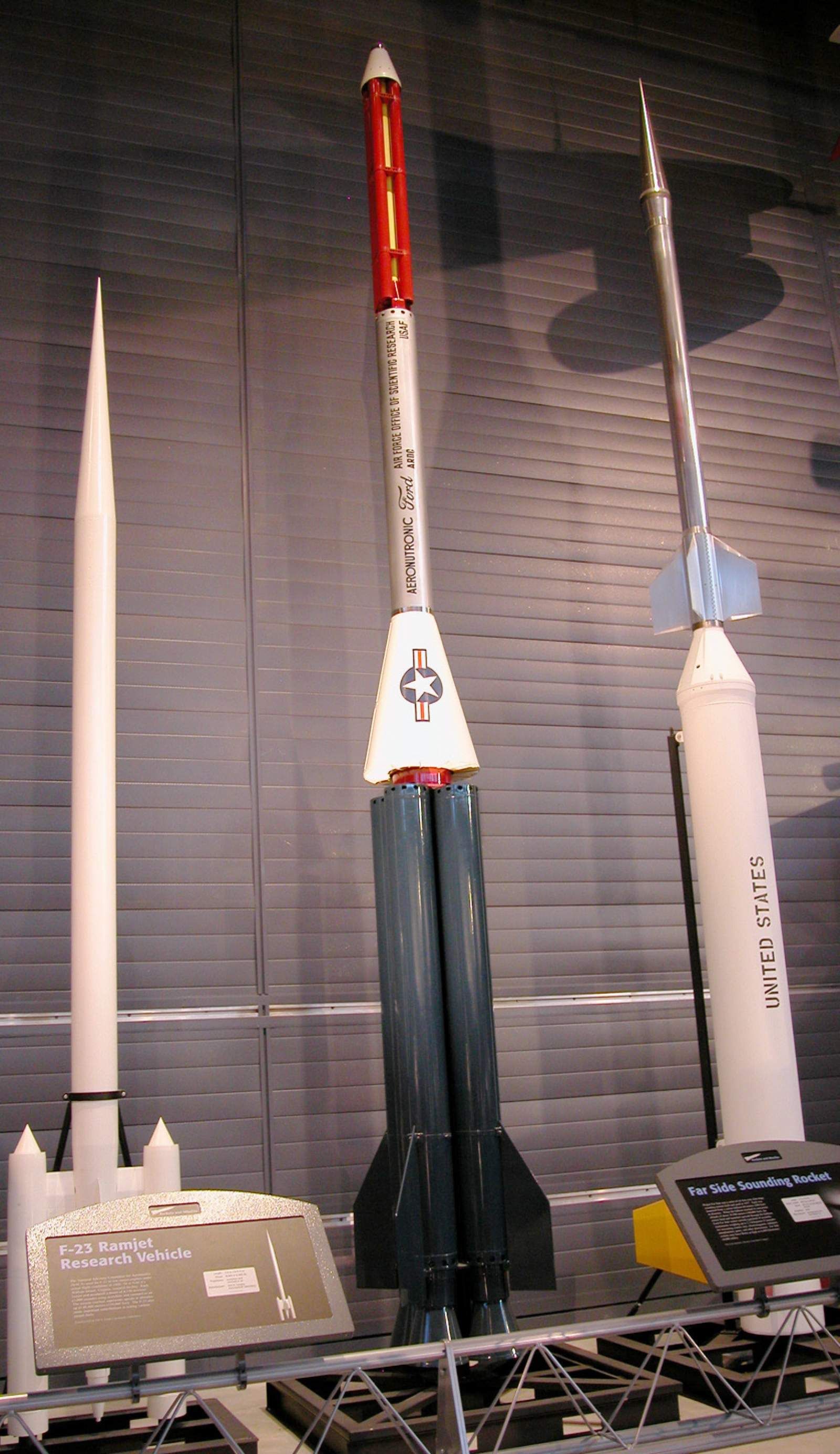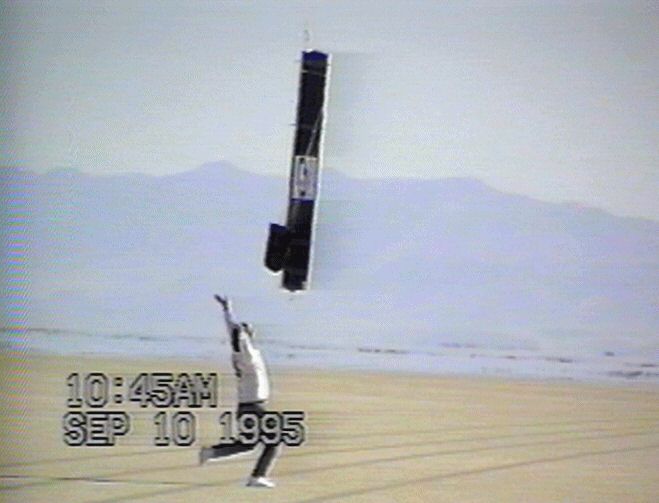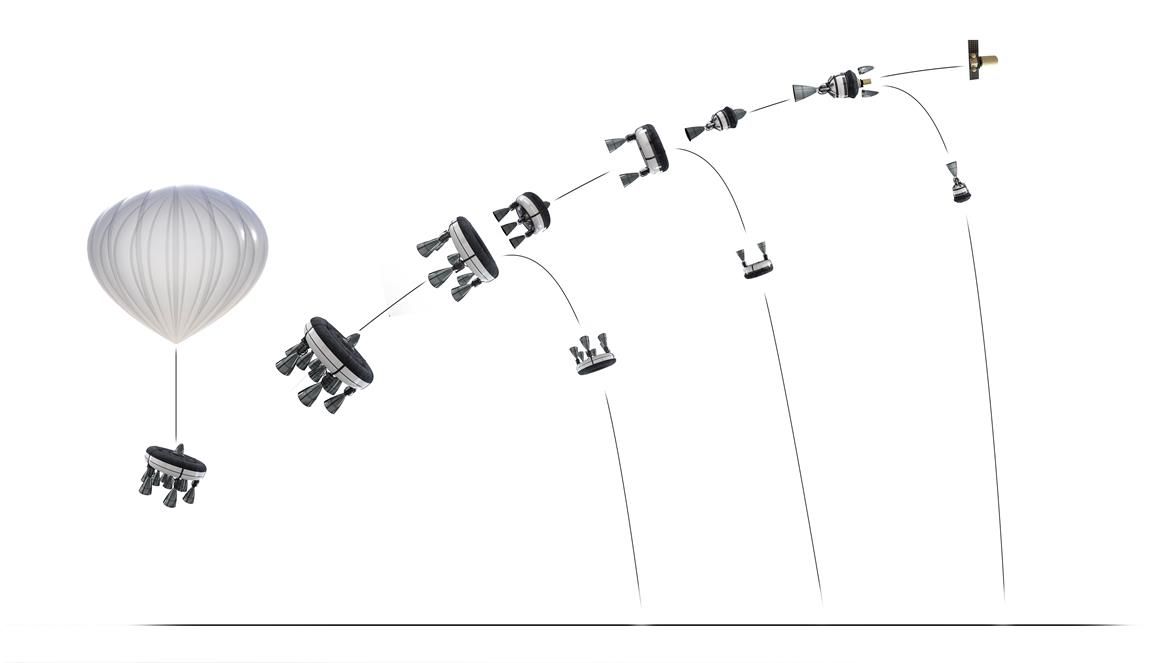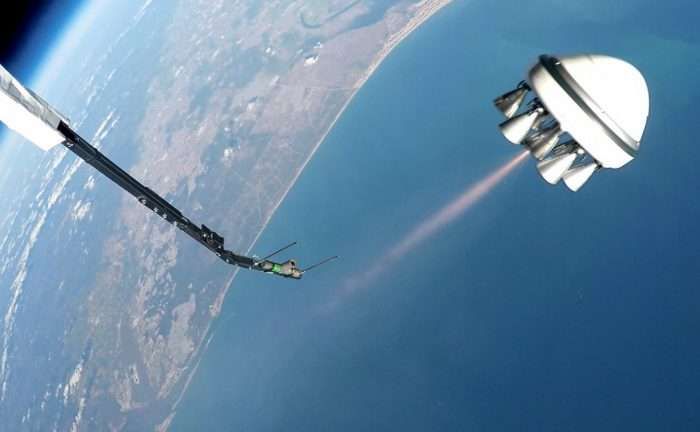The idea of Rockoon came to Lieutenant Morton Lee Lewis of the US Navy during a campaign of Aerobee rocket launches that took place in March 1949 on board the U.S.S. Norton Sound
During the first years of the 1950s dozens of missions were carried out with these devices, using as launching platform the icebreakers that the US Coast Guard used to replenish the scientific and military bases in the Arctic.
Missions were also carried out from equatorial latitudes, in Antarctica and off the west coast of the USA.
Dr. James Van Allen, was the first to use a balloon to raise a rocket to the stratosphere and launch it from there.
